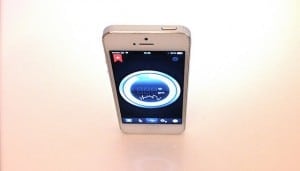 With the expanding world of mobile industry, we are now provided with convenient ways of dealing with our daily activities such as keeping track with our health through helpful apps. In fact, this trend is said to continue to flourish by next year, with an expectation that health app users will reach 500 million in 2015. “Our findings indicate that the long-expected mobile revolution in healthcare is set to happen. Both healthcare providers and consumers are embracing smartphones as a means to improving healthcare,” said Ralf-Gordon Jahns, head researcher of Global Mobile Health Market Report 2010-2015.
With the expanding world of mobile industry, we are now provided with convenient ways of dealing with our daily activities such as keeping track with our health through helpful apps. In fact, this trend is said to continue to flourish by next year, with an expectation that health app users will reach 500 million in 2015. “Our findings indicate that the long-expected mobile revolution in healthcare is set to happen. Both healthcare providers and consumers are embracing smartphones as a means to improving healthcare,” said Ralf-Gordon Jahns, head researcher of Global Mobile Health Market Report 2010-2015.
Among the health apps today, 43 percent of it is designed to assist medical professionals. This goes to show that mobile health (mHealth) has gone beyond personal use only. In this post, let us take you deeper into the expanding world of mHealth applications.
Top health apps of 2014
With hundreds (and perhaps, thousands) of applications on the market, it will be overwhelming to most users to know which of these works and performs as expected. Although it’s effective to read reviews online and check their rating via their Google Play Store or iTunes page, it can still be confusing most of the time. To help you out, here are the current top health applications of this year:
1. MyFitnessPal – PC Mag Editors gave it a five out of five rating, stating that it is one of the top health application with its all-in-one calories counter and workout tracker for iPhone users. It isn’t difficult to navigate over its dashboard with its simple design and interface. It’s comprehensive food and nutrition database is its unique features.
2. WebMD – Your popular choice for medical references online is now available for your mobile devices for free. The WebMD app is not only as a symptom checker, although it can provide you with some clues regarding your ailment, it can also offer a list of healthcare professionals and local pharmacies near you, first-aid guides, tests and procedures, information about certain medicines, and some medical terms. All of these information are free upon downloading the mobile WebMD.
3. Noom Coach: Weight Loss – Since June 2014, this application has received 2,921 iOS downloads. The Noom Weight is a popular application that helps you lose pounds by logging your current weight and your dietary process. It helps its user to develop better eating habits and enjoy a healthier lifestyle.
Wearables and apps
Today’s smartwatches provide its users with the basic health data such as heart rate, steps taken, calories burnt and more. These gears are more focused on providing a portable mobile experience by connecting to the internet, getting notifications, and even to become a standalone device by making and receiving calls. But, there are also fitness bands such as the ones by Sony (Smartband and Smartband Talk) that are designed to track more than your heart rate. It can monitor your sleep, physical activity, and altitude changes. These data can be viewed on its paired handset with the Lifelog app.
Future of mHealth
As wearables continue to develop, we should expect more applications to also be available to these new platforms. One of the much-awaited gear next year is the Embrace by Empatica. This device is said to assist people with chronic epileptic seizures by prompting their caregivers, family member, or friends who are also wearing the paired band when an attack happens. It also has a paired application (Empatica Alert) that can be installed to get updates about the patient. But, they also have Empatica Mate that provides data about the user’s stress levels, arousal and sleep, and physical activity feedback. A successful Indiegogo project, its estimated delivery will be July next year.
Another wearable technology for specialized health assistance is the one Google and pharmaceutical company Novartis are currently developing. They are coming up with contact lenses that can assist diabetics in monitoring their blood sugar. This will be non-invasive, unlike the common process of getting glucose levels today. It is said to also help in restoring the eye’s autofocus to relieve the patient of reading glasses. The modern eye lenses are said to also come with an application.
So long as mobile devices are here to assist us, we should expect more mHealth apps in the coming future for consumer and medical practitioners. How do you view the future of mobile technology and health?
Image credit: www.flickr.com/photos/healthgauge
